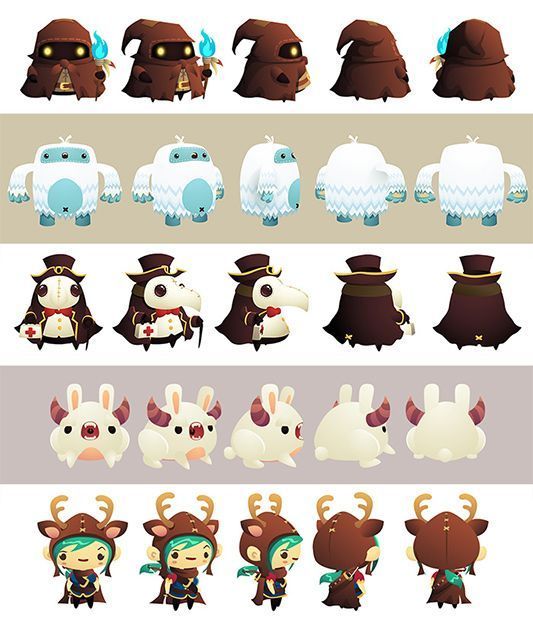
When it comes to video games, one of the most important elements that can make or break a player’s experience is the title of the game. A game’s title serves as the first point of contact between the player and the game itself, setting the tone and expectations for what lies ahead. In this article, we will explore how game titles play a crucial role in shaping the player’s perception of a game and influencing their overall experience.
The Power of a Game Title
A game title is more than just a name – it is a powerful tool that can evoke emotions, generate curiosity, and communicate the essence of the game. A well-chosen title can create an instant connection with players, sparking their interest and drawing them into the game world. On the other hand, a poorly thought-out title can leave players feeling confused or uninterested, leading them to overlook a potentially great game.
Game titles are often the first thing players see and hear about a game, whether it’s in a store, online, or through word of mouth. As such, they play a crucial role in grabbing the player’s attention and making a lasting impression. A memorable title can stick in a player’s mind long after they have finished playing the game, becoming a key part of the overall gaming experience.
Setting the Tone
One of the most important functions of a game title is to set the tone for the game and give players a glimpse of what to expect. A title can convey the genre, theme, and atmosphere of the game, helping players understand the type of experience they are about to embark on. For example, a title like “Dark Souls” immediately suggests a challenging, dark, and gritty game, while a title like “Animal Crossing” hints at a peaceful, relaxing, and lighthearted experience.
The tone set by a game title can influence various aspects of the game, including its story, characters, setting, and gameplay. A title like “Doom” promises fast-paced action, intense battles, and a sense of impending doom, while a title like “The Legend of Zelda” suggests a grand, epic adventure filled with puzzles, exploration, and mystery. By setting the right tone, a game title can help players know what to expect and whether the game aligns with their preferences.
Creating Expectations
In addition to setting the tone, game titles also play a crucial role in creating expectations for players. A title can give players a sense of what the game will be like, what they will be doing, and what kind of experience they can look forward to. This can help players decide whether a game is worth playing, based on their interests and preferences.
For example, a title like “Call of Duty” implies a military-themed, first-person shooter game with a focus on fast-paced action, realistic warfare, and multiplayer gameplay. Players who enjoy this type of experience will be drawn to the game, while those who prefer a different genre or style of gameplay may choose to pass on it. Similarly, a title like “The Sims” suggests a life simulation game where players can create and control virtual characters, build homes, and engage in various activities.
By creating clear expectations through the title, game developers can attract the right audience and ensure that players have a positive experience with the game. A misleading or vague title can lead to disappointment and frustration, as players may not get what they were expecting based on the title alone.
The Impact of Game Titles on Sales and Marketing

Game titles are also crucial for sales best minecraft server hosting for mods and marketing efforts, as they can significantly impact the success of a game in the competitive gaming industry. A catchy, memorable, and descriptive title can help a game stand out from the crowd, attract attention from players and the media, and generate buzz and excitement around the game’s release.
A well-crafted title can also make it easier for players to find and remember the game, especially in a saturated market with countless new releases every year. A title that is easy to pronounce, spell, and search for can improve the game’s visibility and discoverability, increasing its chances of reaching a wider audience and generating more sales.
On the other hand, a generic, uninspired, or confusing title can hinder a game’s success, making it harder for players to notice, remember, and engage with the game. A title that is too similar to other games in the same genre or lacks creativity and originality can make it challenging for a game to differentiate itself and create a unique identity in the market.
Tips for Creating Compelling Game Titles
Creating a compelling game title that sets the right tone and expectations for players requires careful thought, creativity, and strategic planning. Here are some tips for developers and publishers looking to come up with a memorable and effective game title:
1. Reflect the game’s core themes and features: Choose a title that reflects the essence of the game, including its genre, story, characters, setting, and gameplay mechanics. Consider what makes the game unique and why players would be interested in playing it.
2. Keep it simple and memorable: Avoid overly long, complex, or generic titles that are hard to remember, pronounce, or spell. A simple, catchy, and easy-to-understand title can make it easier for players to find and recommend the game to others.
3. Consider the target audience: Think about the preferences, expectations, and interests of the target audience when coming up with a game title. Consider what type of players would enjoy the game and what kind of experience they are looking for.
4. Test with focus groups and surveys: Before finalizing a game title, conduct research and gather feedback from focus groups, surveys, and playtests. Get input from players to see how they react to the title and whether it effectively conveys the intended tone and expectations.
5. Check for trademark and domain availability: Make sure the title is unique, original, and available for use as a trademark and domain name. Avoid using titles that are already in use by other games or brands to prevent legal issues and confusion among players.
Conclusion
In conclusion, game titles play a crucial role in shaping the player’s perception of a game, setting the tone and expectations for what lies ahead. A well-crafted title can evoke emotions, generate curiosity, and communicate the essence of the game, helping players understand what to expect and whether the game aligns with their preferences. By creating a compelling and effective game title, developers and publishers can attract the right audience, generate buzz and excitement, and increase the chances of a game’s success in the competitive gaming industry. So the next time you’re browsing through the latest video game releases, pay attention to the titles – they may give you valuable insight into the game’s tone and expectations.

